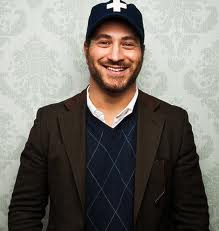 A US-based content marketing company headed by an expat Australian has won a Gold Lion at Cannes in the product design category.
A US-based content marketing company headed by an expat Australian has won a Gold Lion at Cannes in the product design category.
The co-founder of Not Impossible Labs in Venice Beach, California, is Elliot Kotek, who studied at Monash University. Along with Richard Van, the duo won recognition for their work on ‘Project Daniel‘.
The project saw Not Impossible Labs print 3D prosthetic arms for children of Sudan with the company training locals to use the 3D printers so the work could continue once the project had ended, all with the backing of Intel.
Project Daniel came about through a chance meeting between Kotek and Ebeling Group’s Mick Ebeling, which saw the two stay in contact pitching ideas back and forth until Project Daniel was born.
ADVERTISEMENT
The project has already notched up a number of other awards to go with the Cannes Lion win, taking home two Gold Pencils at the One Show Awards, a silver and a bronze at the Silver Telly awards and the Next Award for cause marketing at the AICP Awards.
“That to us has been a proof of concept. Intel spent a fraction of what they would spend on a normal advertising campaign, we spent it on a project,” Kotek told Mumbrella “Instead of having costumes and set designs left over at the end of the day, what we have left over are prosthetic limbs for kids in the Sudan and 3D printers we were able to leave in a hospital. People there are now trained and can continue to print prosthetic limbs for people and that’s the excess that came out of a commercial production.
“Project Daniel has now had more than half a billion eyeballs and its starting to win awards which will mean its one of Intel’s most successful campaigns yet its so subtle in terms of their involvement.”
Kotek, who has a science and a law degree from Monash University, said Not Impossible Labs operates around the motto “Help one, help many”.
“We share and advertise our own projects but we basically crowd-source solutions to various problems with regards to access. Let’s say there is a kid who needs a powered wheelchair but its too expensive or they live in a remote location than we assemble a team who donate time to try and solve the problem.
“Then we bring a brand in to underwrite that project and we tell the story about the person the project has helped.